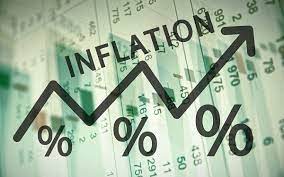Nigeria needs efficient fiscal spending to curb inflation – Expert
The federal government has been urged to make public expenditure more efficient as well as address the challenges of supply to curb inflation. Speaking at the 13th Annual Bankers’ Committee Retreat, the Managing Director/Chief Economist at Analysts Data Services & Resources, Afolabi E. Olowookere, said current fiscal and monetary policies would have an immediate, but […]

The federal government has been urged to make public expenditure more efficient as well as address the challenges of supply to curb inflation.
Speaking at the 13th Annual Bankers’ Committee Retreat, the Managing Director/Chief Economist at Analysts Data Services & Resources, Afolabi E. Olowookere, said current fiscal and monetary policies would have an immediate, but temporary, impact on the economy, especially, when multiple rate hikes are introduced in succession.
Olowookere said with unemployment and poverty levels very high in the country, the attendant effect is the reduction in purchasing power, low corporate performance and low government revenue which would in turn leave citizens’ welfare in a vicious cycle.
“This issue is reflected in insecurity, attitude and lack of trust in government and its agencies as well as citizens’ vulnerabilities to investment and political frauds.
- Gunmen abduct 2, injure others in Jigawa community
- US awards $4m grant to fight child labour in Nigeria, others
“Government at all levels and the corporate world, especially the financial sector, needs to do more to reduce volatility in the economy.
He added that the high differential between official and parallel exchange rates is also contributing to the low perception and actual feelings of the citizens who await the CBN’s silver bullet to ensure convergence and predictability.
He explained that the Nigerian GDP is still dominated by agriculture while manufacturing contribution has not increased significantly, averaging between 10 and 13 per cent but that the sectors need to be supported by the financial sector to increase value addition and sophistication.
“Global uncertainties like the Ukraine war, efforts to curb inflation and likelihood of global recession will continue. In the domestic economy, the outcome of the 2023 election will be significant as well as how the issue of subsidy is handled.
“The financial sector will continue to be disrupted by new entrants aided by technology and data usage. Fast-evolving customer preferences and interoperability among financial services providers and subsectors will also be critical factors,” he stated.
